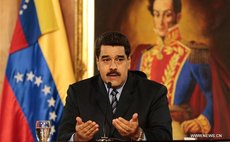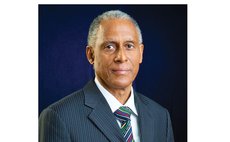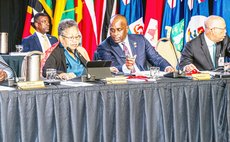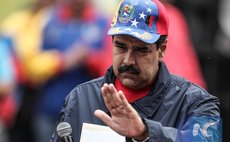The Power of Literature
We, human beings, are born with certain dispositions. Children from very early in their lives are captivated by the thrill of a story. Some mothers know well how to exploit this reality. Storytelling is related to the existential nature of the human person. It captures an essential aspect of the human psyche. It appeals to human nature in its very depths. It is not something which is merely additional to human life, but it is part and parcel of what it is to be human.
Certainly, literature is not all storytelling in the popular sense of the word. However, it is a narration or explication of human reality, human emotions, human dreams. As such, whatever form it may take, it depicts a part of the human journey. Literature does entail in one way or other the telling of a story.
Every nation, every ethnic group, has its own stories. These stories do not merely capture the revelation of a people's experience of life, joys and tribulations, successes and failures on their journey. They also speak of their values, their inspirations, their goals, their destiny. They also express in one form or another, for example, as a novel, a drama, an autobiography, a poem, the criticism or approbation of certain aspects of their culture. Literature provides a sort of mirror in which to behold some obscure human realities. It sometimes highlights and even glorifies a people's experiences. It may even, in a prophetic sense, chart the course for future generations.
Here, in the Commonwealth of Dominica, we are not a very creative people. Indeed, this is one salient lack in our development. However, for a poor country, we have done fairly well in the area of literary production. This needs to be highlighted. Our schools should endeavour to inculcate our literary production in their curriculum.
In 'Distant Voices, the Genesis of an Indigenous Literature in Dominica', Dr. Irving André has, in a very comprehensive and masterly manner, presented us with an overview of local literary expression during the 20th century. I have no hesitation in describing this book, along with the 'Dominican Story' by Dr. Lennox Honychurch, as the two most valuable literary productions, to come from the Commonwealth of Dominica. The biographies of Dr. André are also unique contributions to literary development.
Several worthy efforts have been made in the last fifty years to develop local literary experience. Edward Leblanc, Ralph Casimir, Cynthia Watt, were the early pioneers. Then we have had Mark Sylvester, Alfred Leevy, Giftus John, Alick Lazare, Dr. Kay Polydore, Dr. Billy Dyer, and others in the fields of poetry and prose. One must not forget the contribution of Edward Scobie, for example, in the weekly newspaper, 'The Herald', and in 'DIES DOMINICA' a publication commemorating, Dominica Day, in 1965. Dr. William Green has given us an interesting account of his experience as a medical doctor. Earlier, Dr. John Royer published a well presented book, entitled 'Black Britannia's Dilemma'.
One must not omit to acknowledge the significant literary contribution made by Dr. Alwin Bully in his production of several plays. Phyllis Shand Allfrey is also to be remembered for her novel 'Orchid House' and her newspaper, 'THE STAR'. A number of people like Dorothy Leevy, Alma Darroux, Felix Henderson, have shown much literary skill.
What is perhaps lacking is recognition of these authors and their valuable production. Our educational system should entail a study of local literary works, particularly those which have a bearing on our history. For example, how many students who have gone through State College have read or heard of the excellent book by Dr. Irving André and Dr. Gabriel Christian, 'Death By Fire'? It reminds me of that very memorable literary work, 'Death of a President', by William Manchester. That book captures just about every incident, local and international, surrounding the death of President John F. Kennedy.
What is the real value of literature? What makes it out as radically different from the other aspects of human expression? How does literature relate to nation building? What contribution does literature make to world history?
Literature is an area of human life which transcends all barriers—racial, social, political, religious. Literature has a tremendous unifying power. People from all parts of the world can come together and establish solidarity with fellow writers. They experience a common bond. This is what makes, for example, St. Lucia's Nobel Prize in Literature winner, Derek Walcott, at home in any part of the world.
During the apartheid regime in South Africa, it was mainly the privileged Whites against the oppressed Blacks. However, there were powerful literary voices that championed the cause of the downtrodden. First, there were White South African writers, like Alan Paton ('Cry, Beloved Country'), and Peter Abrahams ('Tell Freedom'). Later, White writers, like André Brink and Jan Rabie, joined their voices to the cry of freedom for Blacks.
Social transformation is a most important goal. Human life is never static. It is always in flux. It is given. Yet it always has to be reformed and renewed. Literature has the very important task of achieving that excellent goal.
Anyone who wishes to be a writer must be prepared for a difficult encounter with society. Any writer who is worth his salt must sometimes challenge the prevailing culture. Any writer who is determined to play the game of the political authority is no more a student of literature. He is a politician. A writer must at all times display an independence which he derives from no man. This is the only way in which he can make a genuine contribution to the world in which he lives.




